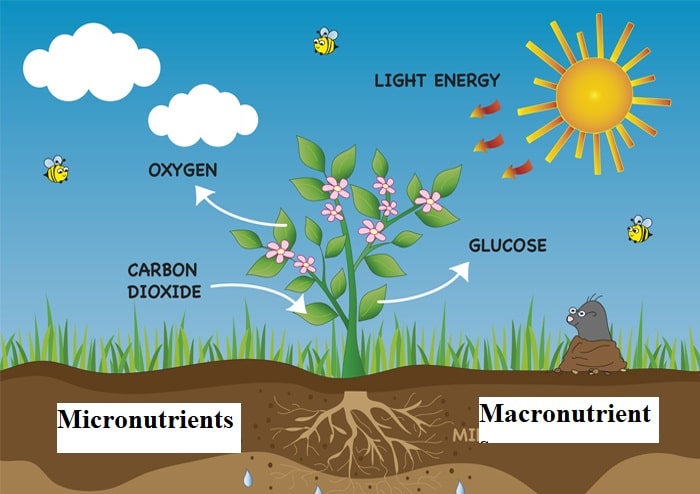Micronutrients are plant nutrients essential for optimum plant growth, but required in small amounts. Most complete fertilizers contain 6 micronutrients, and the percentage of each is critical to prevent toxicities and/or deficiencies.
These include:
1: Boron (B) – Aids in the differentiation of plant cells, and also regulates the metabolism of carbohydrates.
2: Copper {Cu) – Activates several essential enzyme systems in plants.
3: Iron (Fe) – Required for the formation of chlorophyll, and also controls the synthesis of indoleacetic acid, a plant growth regulator.
4: Manganese (Mn) – Assists iron in chlorophyll formation. High levels of Mn may induce Fe deficiency. This symptom is sometimes called Mn toxicity.
5: Zinc (Zn) – An essential component of several enzyme systems. Like Fe, it also controls the synthesis of indoleacetic acid.
6: Molybdenum (Mo) – Required by plants for utilization of Nitrogen, allowing nitrate nitrogen to transform to amino acids.
The primary plant nutrients, Nitrogen (N), Phosphorus (P), and Potassium (K) are utilized by plants in the greatest quantities but rely on the micronutrients to function properly in plant growth and development.
The secondary essential plant nutrients, Calcium (Ca), Magnesium (Mg) and Sulfur (S) also require the micronutrients in order for plants to assimilate them and utilize them efficiently. Micronutrients are plant nutrients essential for optimum plant growth.
The Doggett line of professional fertilizers utilizes premium micronutrients and researched ratios to address a wide range of growing conditions and plant nutrient requirements. Find our products here.

